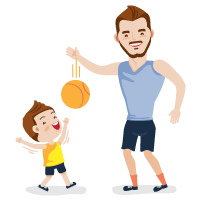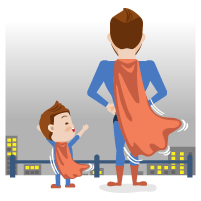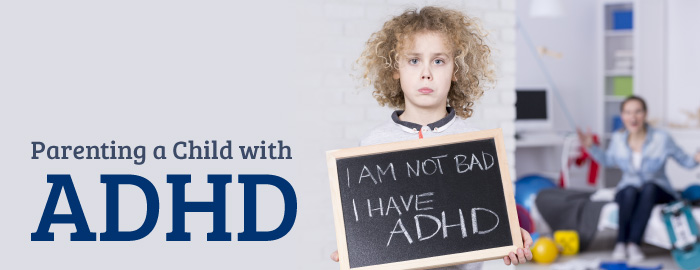|
Attention-deficit/hyperactivity disorder (ADHD) is a neurodevelopmental disorder that affects the parts of the brain that help us plan, focus on, and execute tasks. Children with ADHD often demonstrate some of the following: trouble paying attention, are overly active, have difficulties controlling impulsive behaviors, struggles with the concept of time and organisation, often forgetful, experiences intense emotions, or have poor follow through with instructions and tasks. While some of the abovementioned presentations are normal when they are temporary, children with ADHD experience them for a prolonged period of time and at greater intensity, causing interference with their ability to function normally at home, at school or in social situations.

General tips for parents to improve attention:

1. Minimise screen time
Limit screen time to an hour a day for children under 6 and 2-hours for children under 12. Also, avoid using your own electronic devices excessively in front of your child and have a set time each day for your child to have access to screens.
2. Provide opportunities for daily physical activities
Aim for 20-30 minutes of active time per day, right before sitting down to do a serious task. Examples of activities include trampoline jumping, dancing, riding bikes, swimming, playing tag or skipping rope.
3. Provide ample praise and encouragement
Retrain yourself to notice your child’s successes, no matter how small. Make an effort to catch your child paying attention well or doing what they are supposed to be doing, and tell them. When desirable behaviours and effort is pointed out and praised, this improves self-esteem.

4. Practice good sleep hygiene
Children are encouraged to get 10-12 hours of sleep daily. Keep to a simple, consistent and relaxing daily sleep routine. As a guideline: Have meals 3-hours before bedtime, cut out screen time 2-hours before bedtime, start night routines (e.g., showers, brushing teeth, choosing pyjamas) 1-hour before bedtime, and get your child in bed 30-minutes before bedtime.
5. Parents, be role models
Parents are encouraged to model positive ways to manage personal emotions and reactions. Consider how you control your own reactions as children learn through observation. Remain calm when handling a situation, and if it is not possible, leave the room to calm yourself down before addressing your child. If you do lose your temper, do not hesitate to apologise to your child.

6. Seek help from a professional
If your child is above the age of 6 and has attention difficulties that impact their functioning at school, at home or within social situations, it may be beneficial to seek guidance from a Psychologist. A Psychologist can assess your child’s strengths and weaknesses to determine if they may benefit from therapeutic support and/or accommodations at school.
|



